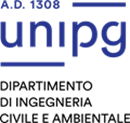Study-unit TECNICAL ARCHITECTURE
| Course name | Civil and environmental engineering |
|---|---|
| Study-unit Code | 70199906 |
| Curriculum | Ingegneria civile |
| Lecturer | Giovanni Mochi |
| Lecturers |
|
| Hours |
|
| CFU | 6 |
| Course Regulation | Coorte 2021 |
| Supplied | 2022/23 |
| Supplied other course regulation | |
| Learning activities | Caratterizzante |
| Area | Ingegneria civile |
| Sector | ICAR/10 |
| Type of study-unit | Obbligatorio (Required) |
| Type of learning activities | Attività formativa monodisciplinare |
| Language of instruction | Italian |
| Contents | The course aims to provide basic knowledge in the relationship between technique (materials, construction solutions, performance analysis) and architecture. |
| Reference texts | E. Dassori e R. Morbiducci, Costruire l'architettura, Tecniche NUove, 2010. M. Zaffagnini, Progettare nel processo edilizio, Luigi Parma Editore, 1981. A. Martini e G. Carapella, Sostenibilità e innovazione. Nuova edilizia e riqualificazione, Almisisi, 2014. R. Gulli, Struttura e costruzione, FUP, 2012. R. Gulli, Recupero edilizio in ambito sismico, Edicomedizioni, 2010. |
| Educational objectives | The course aims to provide students with the skills necessary to understand the technical contents of new and existing architectures The main knowledge (Dublin Descriptor 1) acquired will be: • knowledge of the characteristics of building materials and of the main construction techniques. • knowledge of the fundamental elements of existing constructions and methods of assessing their safety. The main skills acquired (ability to apply the knowledge acquired, Dublin Descriptor 2, and to adopt the appropriate approach with autonomy of judgment, Dublin Descriptor 3) will be: • ability to understand the different aspects of a new architecture; • ability to identify the weaknesses of existing architectures; • ability to develop an executive project of a simple building; • ability to analyze the various possible solutions to improve the safety performance of an existing building. |
| Prerequisites | Knowledge of the physical principles of statics and mechanics of rigid bodies. |
| Teaching methods | The course is divided into theoretical lessons, practical exercises and laboratory activities. |
| Other information | None |
| Learning verification modality | The exam consists of an individual oral test. The verification of the teaching objectives of the course (exam) includes an oral test, which will be carried out on the dates set in the CdS exam calendar. The oral exam consists of an interview lasting no more than about 45 minutes aimed at ascertaining: i) the level of knowledge of the theoretical contents of the course (Dublin descriptor 1); ii) the level of competence in exposing their knowledge (Dublin descriptor 2); iii) independent judgment (Dublin descriptor 3). The oral exam also aims to verify the student's ability to respond with language properties to the questions proposed by the Commission, to support a dialectical relationship during the interview and to demonstrate logical-deductive and summary skills in the presentation (descriptor of Dublin 4). The final evaluation will be given in thirtieths. |
| Extended program | Building principles and their historical evolution. Current building techniques: framed structures in reinforced concrete and steel, masonry structure. Fundamentals of building refurbishment in the seismic context. |


